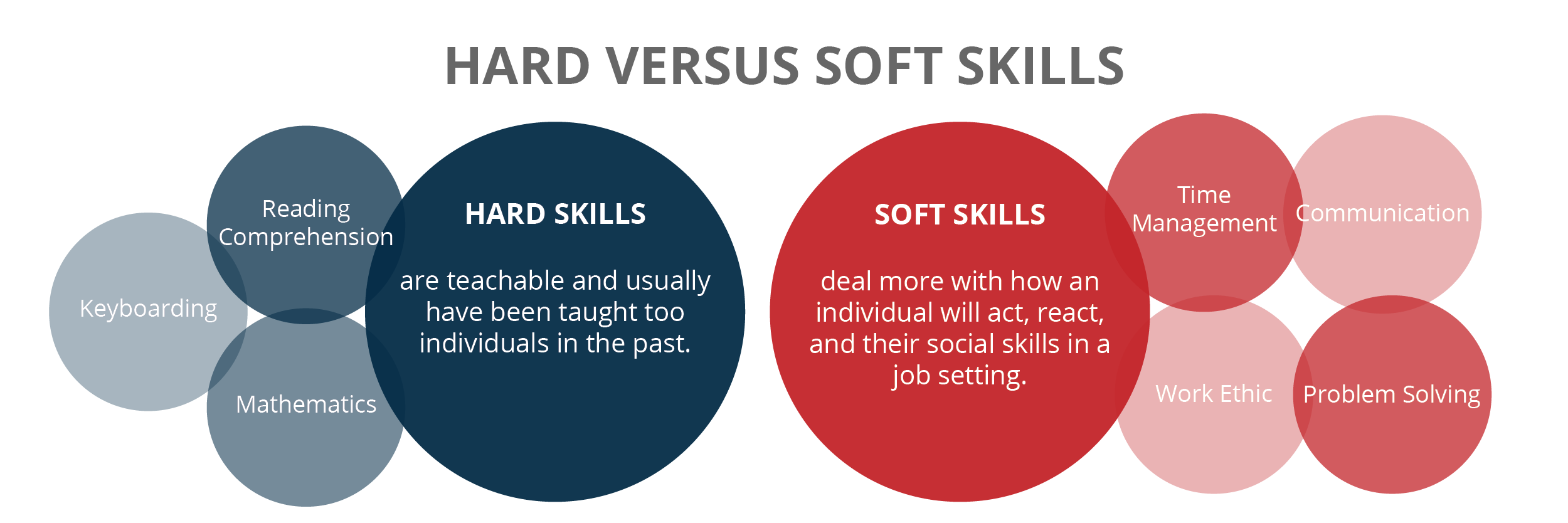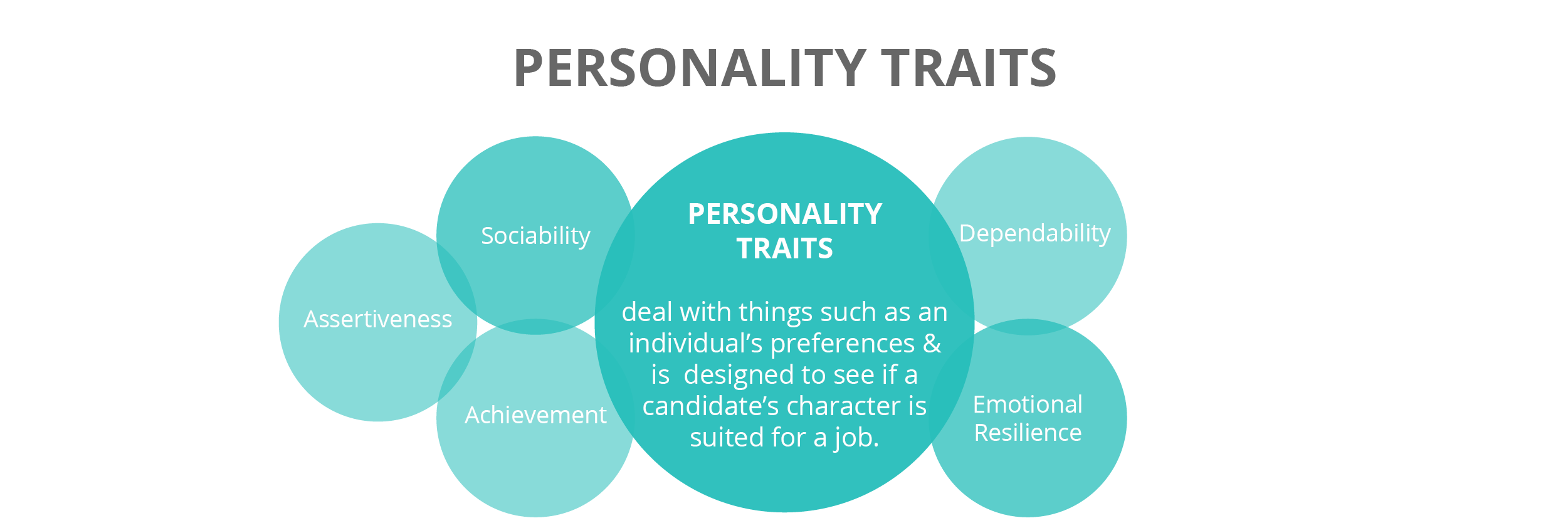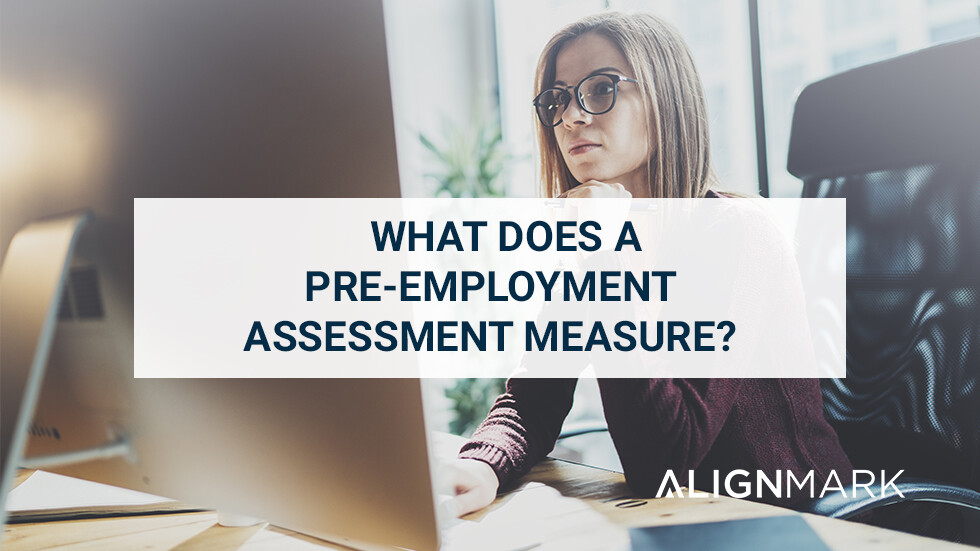Table of Contents
What is a pre-employment assessment?
A pre-employment assessment is a tool that helps screen individuals during an organization’s hiring process. Pre-employment assessments are set up in a way to help hiring managers measure the skills, characteristics, and attributes of an individual before hiring them for a job. Pre-employment assessments were created to not only help make the hiring process more efficient, but also to help hire the “right” candidates which will help reduce turnover and more.
Pre-employment assessments are a great way to see past just the resume and cover letter. These assessments can include a number of different types of questions and assessments. The three main types of tests that are found in these pre-employment assessments are hard skills, soft skills, and personality assessments. All three types of questions are used to assess different aspects of the job applicant to get the most well-rounded results at the end. However, any piece of data gathering would be considered an assessment. For example, the interview is technically a pre-employment assessment and therefore is held up to the same scrutiny as all other assessments (i.e., legal defensibility, fairness, validity, etc.).
Here at AlignMark our pre-employment assessments are online video-based assessments that focus primarily on soft-skills that will help determine how the prospective hire will perform on the job. Video-based assessments use the principle of job simulation to help gather good data on a candidate’s probability of success. These assessments can be configured to fit the needs of the organization.
What does a pre-employment assessment measure?
Below, we will take a deeper dive into what some typical pre-employment assessments measure and how you can use those measurements to find the best-fit hires for your organization. First, are hard skills. The skills below are just some examples of hard skills. Hard skills are teachable and usually have been taught too individuals in the past. These assessments will gauge how well they perform in each topic.

Hard-skill Examples
1. Reading Comprehension
Is the ability to read and interpret materials. Questions on an assessment surrounding this topic may include reading an except and then answering a multiple-choice question about what happened. For example, if you are hiring a law assistant you would want to test their ability to understand legal jargon.
2. Math
Is the ability to solve numerical and statistical based problems. These can range from basic skills like addition and subtraction, to more advance skills such as standard deviations, and weighted averages and more based on the requirements for a job. If you were applying for and cashier position at your local grocery store the math skills would include addition and subtraction, to test your ability to determine change due to a customer. But if you were applying to be an accountant your assessment would be more in-depth.
3. Keyboarding
This skill measures the number of words you can type a minute and how many mistakes are made when typing. This shows if you know how to type and how efficient you will be at typing in a role. This skill may be assessed in positions for various levels.
Soft skills are equally if not more important when assessing if an individual is a good fit for a position. These skills are not technical and deal more with how an individual will act, react, and their social skills in a job setting. Often times measuring these skills are what companies find the most difficult in their hiring process.
Soft Skill Examples
1. Work Ethic
This skill is based around the belief that working has value and rewards. This will assess how hard an individual will work on the job, and if they will go above and beyond while at work. A good example of this would be a situation where if you finished your assigned tasks for the day, whether or not you would start the next days tasks or ask your supervisor what else to do before your shift ends.
2. Problem Solving
This skill is exactly as it sounds; it is the ability to find solutions to problems within the workplace. These problems could range from some companywide issue to a one-time event that needs to be remedied. An example of this may be losing Wi-Fi while checking people in via an online system. The employee needs to find an alternate way of checking individuals in, and find the best and most efficient way to do so.
3. Time management
This skill measures how efficient an employee works while still providing high quality work. The ability to break up their time among activities on a day to day will make for a better fit employee. For many it is making a list of tasks for them self for the coming day.
4. Communication
This skill measures the ability to talk to others on the job. These individuals may be peers, supervisors, customers or guests. Having the ability to communicate with them to help them with their needs, or to share your needs to help prevent problems from occurring.
Finally, the last thing that can be measured in a pre-employment assessment is personality. Personality deals with things such as an individual’s preferences. This assessment is designed to see if a candidate’s character is suited for a position. The questions are directed towards the applicant as an individual, not their background, or how they would react to an on-the-job situation.
Personality Test Examples

1.Sociability
Sociability is a natural tendency to form close relationships with others. Individuals having high Sociability scores tend to be outgoing, friendly and affectionate.
2. Assertiveness
Assertiveness is a natural tendency to express opinions, feelings and desires with confidence and clarity. Individuals having high Assertiveness scores tend to display confidence in themselves and their own values and beliefs.
3. Achievement
Achievement is a natural tendency to strive towards an internal high standard of excellence. Individuals having high Achievement scores tend to be goal oriented and aspire to be successful.
4. Dependability
Dependability is a natural tendency to effectively organize and focus on the task at hand. Individuals having high Dependability scores tend to be organized, reliable, methodical and persistent.
5. Emotional Resilience
Emotional Resilience is a natural tendency to effectively manage negative thoughts and feelings. Individuals having high Emotional Resilience scores tend to be stable, calm, and less prone to distress.
The questions in these pre-employment assessments can either focus on one type of skill that is illustrated above or it can be a combination of multiple types. All of the questions and how an applicant answers them will help an organization or hiring manager have a better idea of who should move forward in the hiring process.
Related Resource: Pre-Employment assessments: Everything you need to know
Related Blog Post: What is a pre-employment test and when should they be utilized










 Dr. Jaffee (M.A., Ph.D.) is a recognized expert in the field of assessments, and has created effective HR Solutions used by millions of people.
Dr. Jaffee (M.A., Ph.D.) is a recognized expert in the field of assessments, and has created effective HR Solutions used by millions of people.